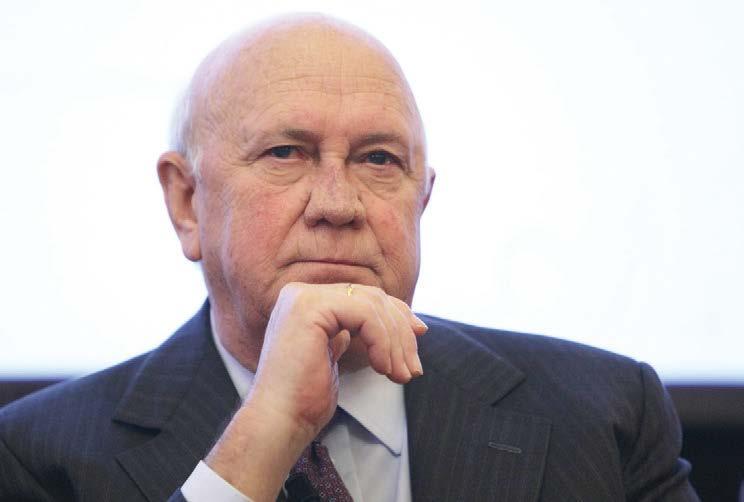Africa-Press – Namibia. SOUTH Africa’s last apartheid-era president, Frederik Willem (FW) de Klerk, leaves behind a mixed legacy, with friend and foe divided on exactly how posterity will remember him. De Klerk died yesterday, aged 85.
He abandoned apartheid late in his political career, when it was clear that international sanctions and internal resistance had made it unsustainable. He shared the Nobel Peace Prize with Nelson Mandela, who he released from prison after working to end racial segregation in South Africa.
The fact that De Klerk eventually put his name behind the transition to democracy cannot atone for the huge amount of harm he did as one of the leading proponents of apartheid for several decades. He was responsible for gross human rights abuses and the imposition of the oppressive apartheid system. This will outweigh his contribution to a peaceful settlement in terms of how he is remembered.
De Klerk was an apartheid apologist, claiming until the end that it was not a crime against humanity. At the Truth and Reconciliation Commission, De Klerk claimed apartheid atrocities were just the work of a few bad eggs and that South Africa’s cabinet was blameless. He lied in making this submission and goes to the grave without answering for his role in apartheid-era crimes.
Analyst Graham Hopwood says by the end of the 1980s, De Klerk was facing determined opposition within South Africa and sanctions were starting to bite. The South African army had already retreated from Angola, and the Nationalist Party had finally agreed to Namibian independence.
“It was a practical decision rather than a moral one to end apartheid, and seek a political settlement with the African National Congress (ANC). I don’t think there was any real remorse on his part.”
Former Namibian politician Andrew Matjila believes De Klerk earned his forgiveness because within a matter of months of being president, he announced the transition process and Mandela’s release on 10 February 1990. He asked for the release to “take place in a dignified and orderly manner”.
“In spite of him walking with apartheid, when he came into power he changed his mind. I would say he made a very good contribution at the time when it was needed. He solved South Africa’s long awaited apartheid policy and everyone was happy,” Matjila says.
“De Klerk died after doing a very good job and should be at peace with himself.”
Political analyst Phanuel Kaapama says the decision to recognise the ANC, release Nelson Mandela and engage in the process that led to the demise of apartheid are major steps, but De Klerk had his shortcomings.
Kaapama says De Klerk leaves behind the negative legacy of being an apartheid apologist and defender. De Klerk was not remorseful to the point that would fully satisfy those who lost loved ones to apartheid, he says.
“Before embarking on that route, it was after serving for close to two decades in an apartheid government. He is in fact guilty of the harm and damage that apartheid imposed, but then of course he ended up being part of the solution inasmuch as he was part of the problem,” Kaapama says.
Former prime minister Nahas Angula describes De Klerk as a great man for his role in ending apartheid and transitioning the country into an independent state.
“Just for that act, he is a great man. He defied the position of his followers. South Africa transitioned. That is a courageous act,” Angula says.
“In politics, leaders need to be courageous to change history for the better.”
For More News And Analysis About Namibia Follow Africa-Press






